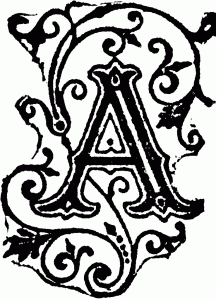This is a book I stumbled across in a Barnes and Noble. I had read The French Lieutenant’s Woman because it was in my Dad’s collection. But I had yet to discover John Fowles. This first-rate writer came out of the sixties with a bang. No other writer from this era really has the descriptive power of Fowles.
The novel concerns Nicholas, and is a tour de force of a bildungsroman. It is clearly a sexually explicit romp through all the caverns of Nicholas’ consciousness. Alison, his paramour, writes him off early in the novel to pursue her various forbidden loves.
What is a magus? It is a magician, a conjurer, a sorcerer of sorts. This was expressly forbidden by scripture, and yet we have magicians. This may be the role of the poet, to use language in a magical way:
We shall not cease from exploration
And the end of all our exploring
Will be to arrive where we started
And know the place for the first time. (69).
The explorer is similar to the magician in that the new environs is like magic. I play the Magic the Gathering game in the same way. This is an exploration, a ‘nonnadoo’ (do nothing) of sorts.
The original title of this book was The God Game. This man is an atheist, but he cannot stop talking about God:
“Lily was humanity bound to duty, unable to choose, suffering, at the mercy of social ideals. Humanity was both crucified and marching toward the cross” (152).
This is the gospel. This method of righteousness is the sale of certain ‘social ideals.’ I was taken aback by the level of detail in which this is described. The cross is still the best way that atheists have to talk about suffering. This happened to me as I was trying to quit smoking. In fact, the cross stands as the primary example from antiquity about suffering. This is the god game that even atheists play.
The magus is Maurice Conchis. He is the wizened old sage that Nick the narrator constantly comes to for advice: “Very wise. If I prayed, I’d ask God never to reveal himself to me. Because if He did I should know that He was not God. But a liar.” (296).
From the Scripture, we understand that ‘all men are liars.’ ( Romans 3: 4). The accusation of God is a liar is the worst amount of heresy. We need to make sure that there is some visiting of the Holy Scripture to the god game. Otherwise, we lack the terms to have a vigorous debate.
Jesus Christ appears only one time in the book, which is 665 pages. “What did Christ say on the cross? Why hast thou forsaken me?” (434). Clearly, even atheists have a sense of the ’emptying’ that the Lord made for our sakes. This is also part of the god game. We talk of the abandoning of the Savior, but He was crucified in our places.
This makes for a good conversation between atheists and believers. As long as we are willing to agree on terminology, we can play the god game with others. But we dare not be anything but silent in the presence of greatness. This is the truth that we have to grapple with: the historical fact of the cross.
I read The Magus because of this god game. It kept me going through some of the pages. If you want to talk about Jesus, you have to make sure that you have the right terms. Even Blaise Pascal said, that faith was a gamble. But according to Pascal, if you bet and lose, you’re out nothing. But if you are right, you have everything to gain (Pascal 132). This wager is what makes the god game meaningful.
Works Cited
Fowles, John. The Magus. Back Bay Books, 2010, pp. 1-655.
Pascal, Blaise. Pensees. Penguin, 2001, p. 132.





